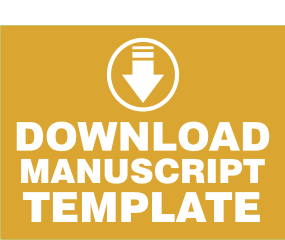APLICATION OF THE PROBLEM BASED LEARNING MODEL TO IMPROVE MATHEMATICS LEARNING OUTCOMES FOR 4TH GRADE STUDENTS OF SDN NO. 48 INPRES GALUNG UTARA BANGGAE DISTRICT MAJENE REGENCY
(1) Universitas Negeri Makassar
(2) PGSD Universitas Negeri Makassar
(3) PGSD Universitas Negeri Makassar
(*) Corresponding Author
DOI: https://doi.org/10.26858/ijest.v2i2.36138
Abstract
References
Ariani, Y., Helsa, Y., & Ahmad, S. (2020). Model-Model Pembelajaran Inovatif Untuk Pembelajaran Matematika di
Kelas IV Sekolah Dasar. Yogyakarta: CV Budi Utama.
Arikunto, dkk. (2006). Penelitian Tindakan Kelas, Jakarta : PT Bumi Aksara.
Dahar. 1996. Teori Belajar. Jakarta: Erlangga.
Djamarah, S. B. (2008). Psikologi Belajar. Jakarta: PT Rineka Cipta
Imas, K., & Sani, B. (2017). Ragam Pengembangan Model Pembelajaran Untuk Peningkatan Profesionalitas Guru.
Jakarta: Kata Pena.
Ishaac, M. (2020). Model-Model Pembelajaran Pendidikan Agama Islam. Jawa Barat: Guepedia.
Isrok'atun, Rosmala, A., & Fatmawati, B. S. (2019). Model-Model Pembelajaran Matematika. Jakarta: Bumi Aksara.
Isrok'atun, Hanifah, N., Maulana, & Suhaebar, I. (2020). Pembelajaran Matematika dan Sains Secara Integratif Melalui
Situation-Based Learning. Jawa Barat: UPI Sumedang Press.
Junita, F. (2013). Penerapan Strategi Pembelajaran Peer Lesson Dengan Tahapan Learning Cycle Berbasis Inkuiri
Untuk Meningkatkan Prestasi Siswa Pada Mata Pelajaran IPA Materi Hubungan Antarmakhluk Hidup.
Universitas Pendidikan Indonesia , 51.
Kpolovie, P. J., Joe, A. I., & Okoto, T. (2014). Academic Achievement Prediction: role of Interest in Learning and
Attitude Towards School. International Journal of Humanities Social Sciences and Education, 1 (11), 73-100.
Kistian, A. (2019). Penerapan Model Pembelajaran Problem Based (PBL) Dalam Meningkatkan Hasil Belajar Siswa
Kelas IV SDN Negeri Ujong Tanjong Kabupaten Aceh Barat. Skripsi, 93.
Pamungkas, T. (2020). Model Pembelajaran Berbasis Masalah (Problem Based Learning). Jawa Barat: Guepedia.
Rusman. (2010). Model-Model Pembelajaran Mengembangkan Profesional Guru. Jakarta: Rajawali Press.
Rusman. (2015). Pembelajaran Tematik Terpadu Teori, Praktik dan Penilaian. Bandung : PT Raja Grafindo Persada.
Rusmono. (2012). Strategi Pembelajaran dengan PBL Itu Perlu. Jakarta: In Ghalia Indonesia.
Sahabuddin, E. S. (2015). Model Pembelajaran Pendidikan Lingkungan Hidup Berbasis Educational-Portofolio Suatu
Tinjauan. Seminar Nasional 2015 Lembaga Penelitian UNM Optimalisasi Hasil-Hasil Penenlitian Dalam
Menunjang Pembangunan Berkelanjutan. 102
Setyo, A. A., Fathurahman, M., & Anwar, Z. (2020). Model Pembelajaran PBL Berbantuan Software Geogebra Untuk
Kemampuan Komunikasi Matematis Dan Self Confidence Siswa SMA. Makassar: Yayasan Barcode.
Sujana, A., & Sopandi, W. (2020). Model-Model Pembelajaran Inovatif : Teori dan Implementasi. Depok: PT
Rajagrafindo Persada.
Sunardin. (2018). Peningkatan Hasil Belajar Siswa Pada Pembelajaran IPS Melalui Model Project Based Learning.
Indonesian Educational Studies (IJES) , 21 (2). 120.
Surya, Y. F. (2017). Penerapan Model Pembelajaran PBL Untuk Meningkatkan Hasil Belajar Matematika Siswa Kelas
IV SDN 016 Langgini Kabupaten Kampar. Jurnal Pendidikan Matematika, 1 (1), 43-44.
(IJEST) International Journal Of Elementary School Teacher
Vol. x, No. x, 2019.
email :ijest@unm.ac.id Page | 12
Susanto, A. 2013. Teori Belajar dan Pembelajaran di Sekolah Dasar. Jakarta: Kencana Prenadamedia Group
Susanto, A. (2014). Pengembangan Pembelajaran IPS. Jakarta: Prenadamedia Group.
Susanto, A. (2016). Teori Belajar dan Pembelajaran di Sekolah Dasar. Jakarta: Prenadamedia Group.
Trianto. 2007. Model-Model Pembelajaran Inovatif Berorientasi Kontruktivistik. Jakarta: Prestasi Pustaka.
Undang-Undang Nomor 23 Tahun 2016 Pasal 4 ayat 1 Tentang Standar Penilaian Hasil Belajar.
Vebrianto, R., Susanti, R., & Annisa. (2021). PBL Untuk Pembelajaran Yang Efektif Di SD/MI. Bengkalis-Riau:
Dotplus Publisher.
Article Metrics
Abstract view : 139 times |Refbacks
- There are currently no refbacks.
Copyright (c) 2023 Nurhidayah Nurhidayah, Sayidiman Sayidiman, Nurhaedah Nurhaedah

This work is licensed under a Creative Commons Attribution-NonCommercial-ShareAlike 4.0 International License.
International Journal of Elementary School Teacher
ISSN 2776-6233 (online)
Email: ijes@unm.ac.id

This work is licensed under a Creative Commons Attribution-ShareAlike 4.0 International License.









